Dental Veneers in Coral Springs, Florida
While some people have gorgeous and beautiful teeth, others aren’t quite as lucky. You might have a chipped tooth that serves as a reminder of a childhood accident or a gap that makes you nervous about smiling. Stains on your teeth such as those caused by wine and coffee can make you feel self-conscious too. Dental veneers give you the chance to change your smile in just a few appointments. At Quesada Dental, we can help you choose the right type and learn more about dental veneers in Coral Springs.
Dentistry Excellencey
What are Dental Veneers and How Do They Work?
Veneers are a popular treatment for men and women who want better-looking smiles. Even some of your favorite celebrities chose veneers, including Emma Roberts and George Clooney. Veneers are essentially a type of thin material attached to the surface of your teeth. They cover all types of damage and stains. You can have veneers applied to as many teeth as you want. The dentist will shape the veneers to fit your teeth and work with your mouth to give you a natural look.
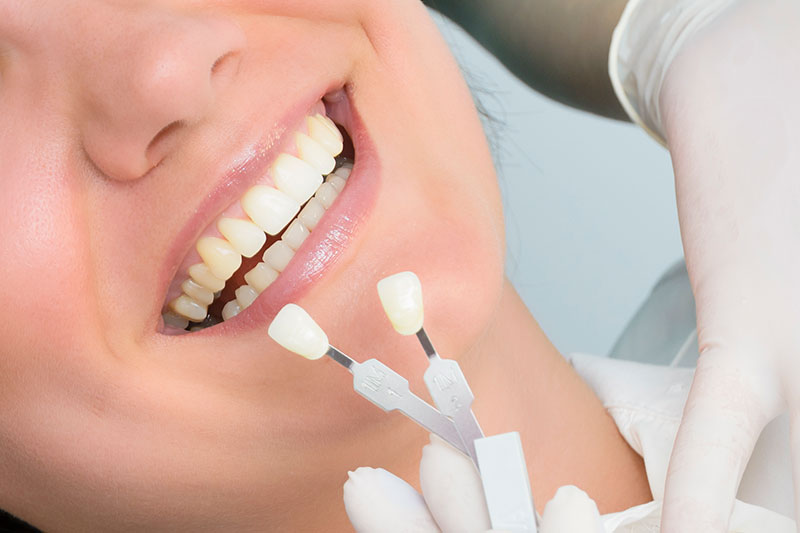
Veneer Types
During your first appointment, the dentist will talk with you about the two different types of veneers. Porcelain veneers are popular among those who have more money to spend on their teeth. These veneers use a type of porcelain that can handle everything that you chew and will last for years. Composite veneers are less expensive but will match the shape and color of your teeth. If you have a tight budget, the dentist might recommend composite veneers. Some insurers will only cover this type, which is something you should check before the procedure.
When Do You Need Veneers?
You should choose dental veneers when you have minor problems that other procedures cannot fix. Stains are a good example. Teeth whitening products work on most stains but not all. Veneers hide those stains behind a thin layer of material attached to your tooth. Your teeth may not grow as straight as you like and be misshapen or irregular. Veneers help those irregular teeth blend with the rest of your mouth. You can also choose veneers if you have teeth that are chipped or show other signs of damage as well as if you have a gap between your teeth.
No-Prep Veneers
As you look at the pros and cons of veneers, you might consider a procedure called no-prep veneers. This procedure takes less time to prepare and is often less expensive. The cost ranges from around $750 to $2,000 per tooth. No-prep veneers do not last as long and may need replacing within the next decade. You do not need to lose a lot of your enamel and can often get your impression done and veneers added on the same day. If you need a root canal or a filling later, the dentist can remove the no-prep veneer to perform the work.
Aftercare for Veneers
The veneers aftercare guide that you get at the end of your appointment shows you how to care for your new veneers at home. We recommend that you avoid chewing on anything that is sharp. This includes your nails and pencils or pens along with pretzels and other hard snacks. Those surfaces can cause the veneers to chip or crack. You should also limit dark liquids that can stain the veneers such as coffee and tea. It’s important that you brush and floss your teeth to extend the life of your veneers, too.
What Does the Veneers Procedure Entail?
Getting veneers isn’t something that happens with one appointment. You typically need at least one appointment after your evaluation. The evaluation helps the dentist check on the condition of your teeth and decide if veneers are the best option. This is also when the dentist uses a mold to take an impression of your teeth. The impression goes to a laboratory where techs make custom veneers that fit your teeth. Your first appointment is when you learn about porcelain and composite veneers to decide which type you want.
The initial evaluation is also when the doctor uses a file to remove some of the enamel from your teeth. You need to lose a small amount of enamel to create a rough surface that keeps the veneer in place. The dentist will take away the enamel from the front and sides of each tooth. You will also have a chance to talk with the dentist about the veneer shade that you want as you look at a shade chart. The chart helps you compare the color of your natural teeth to the available shades to pick one that matches. With the right shade, no one will know that you have veneers.
Your final appointment is when the dentist compares the veneers to your teeth. He will usually place the veneers on your teeth to make sure they are the right size, shape and color. You will then need your teeth cleaned and have a bonding agent applied to the surface. This agent allows the veneers to bond to your teeth and ensures that they do not come loose when you chew or speak. Both porcelain and composite veneers require the same steps along with future appointments to ensure that you don’t have any problems.
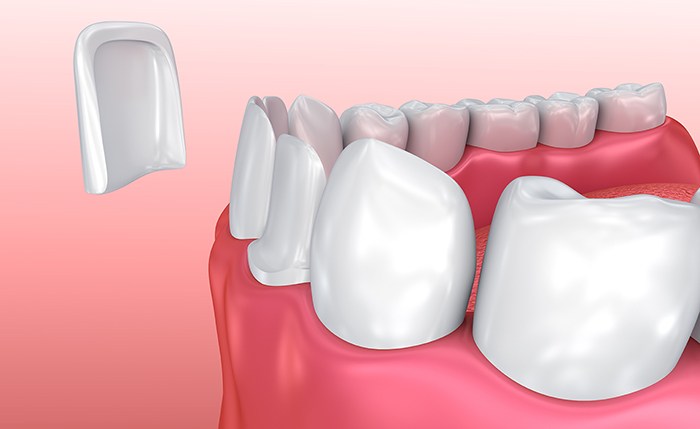
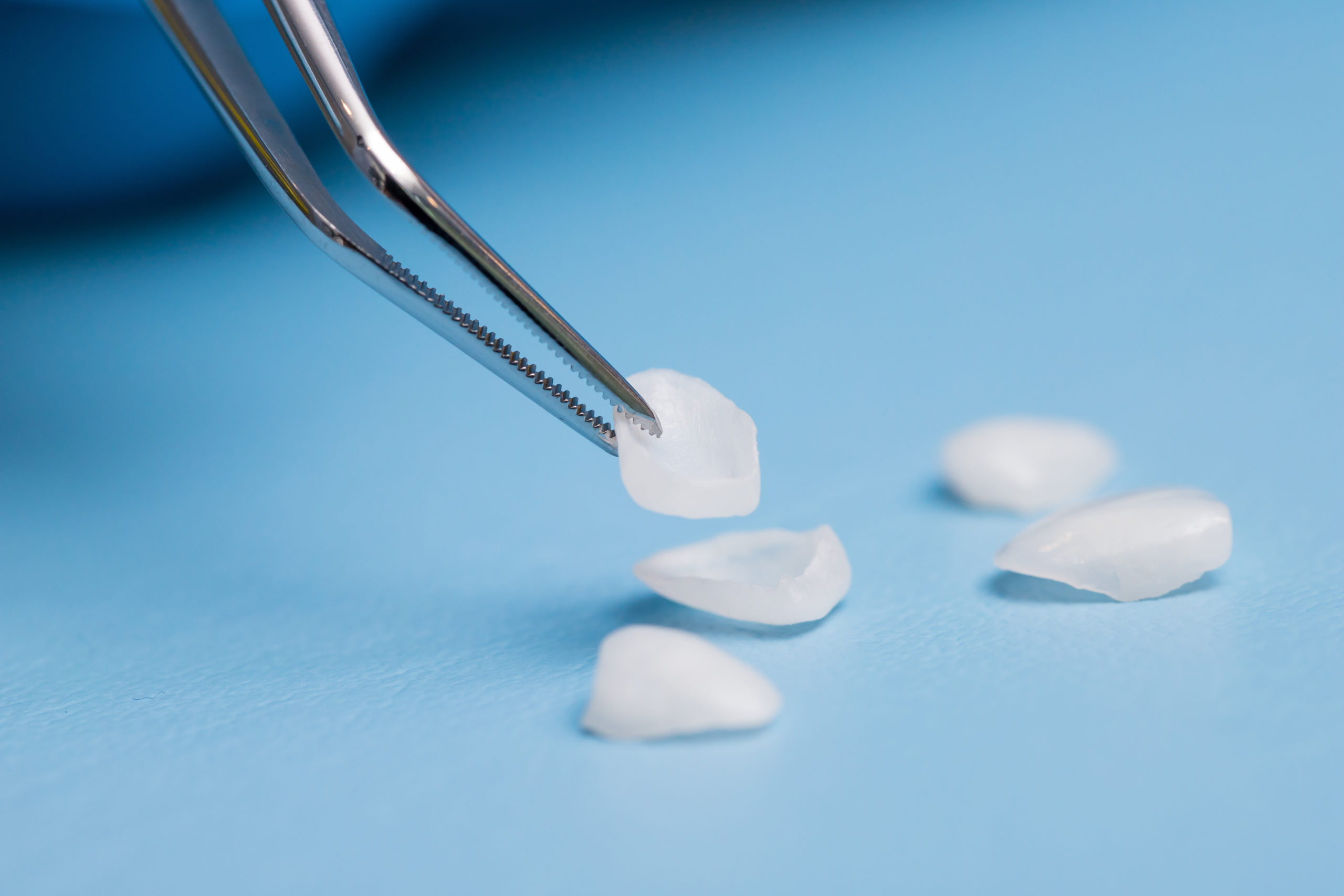
How Much Do Veneers Cost?
Once you learn about how veneers work, you’ll likely want to consider the cost. Veneers typically cost between $950 to $2,500 per tooth. If you need multiple veneers, the cost will add up. These figures often include everything that you need such as your evaluation and impression. Traditional veneers made from either porcelain or composite materials can last for up to 10 years and as long as 15 years. You will still need to see your dentist several times a year for check-ups and to make sure that the veneers are in good shape.
Can Anyone Get Affordable Dental Veneers?
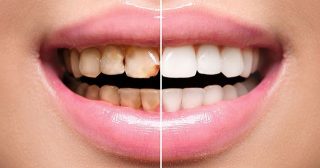 While veneers are a good choice for many, there are some things that you should know before meeting with a veneers Florida dentist. The dentist cannot apply the veneers if you suffer from any type of gum disease. You may need a treatment designed to improve or get rid of the gum disease. If you have severe cavities or teeth that show signs of decay, the dentist needs to treat those issues before giving you veneers. We do not recommend veneers for patients who grind their teeth or clench their jaws. That motion puts too much pressure on the veneers and may cause them to crack.
While veneers are a good choice for many, there are some things that you should know before meeting with a veneers Florida dentist. The dentist cannot apply the veneers if you suffer from any type of gum disease. You may need a treatment designed to improve or get rid of the gum disease. If you have severe cavities or teeth that show signs of decay, the dentist needs to treat those issues before giving you veneers. We do not recommend veneers for patients who grind their teeth or clench their jaws. That motion puts too much pressure on the veneers and may cause them to crack.
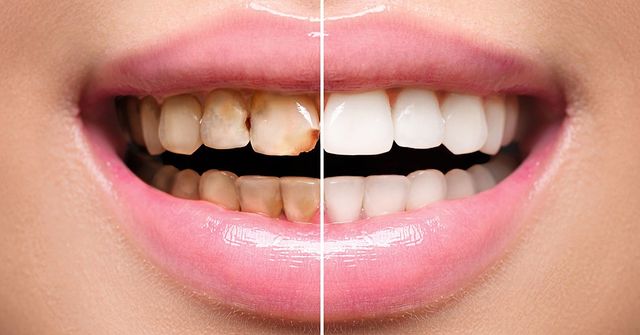
While veneers are a good choice for many, there are some things that you should know before meeting with a veneers Florida dentist. The dentist cannot apply the veneers if you suffer from any type of gum disease. You may need a treatment designed to improve or get rid of the gum disease. If you have severe cavities or teeth that show signs of decay, the dentist needs to treat those issues before giving you veneers. We do not recommend veneers for patients who grind their teeth or clench their jaws. That motion puts too much pressure on the veneers and may cause them to crack.
Get Dental Veneers in Coral Springs
Called one of the best places in the country to live, Coral Springs is home to more than 120,000 people. You never know when you might need to make a good first impression that requires a healthy smile. Why avoid showing off your teeth or covering your face with your hand when you smile? Veneers give you the amazing smile that you want and one that will wow others. Whether you have an interest in composite or porcelain veneers, call Quesada Dental today. Make an appointment to talk about veneers and find out more about the procedure, including how it can improve your smile.


